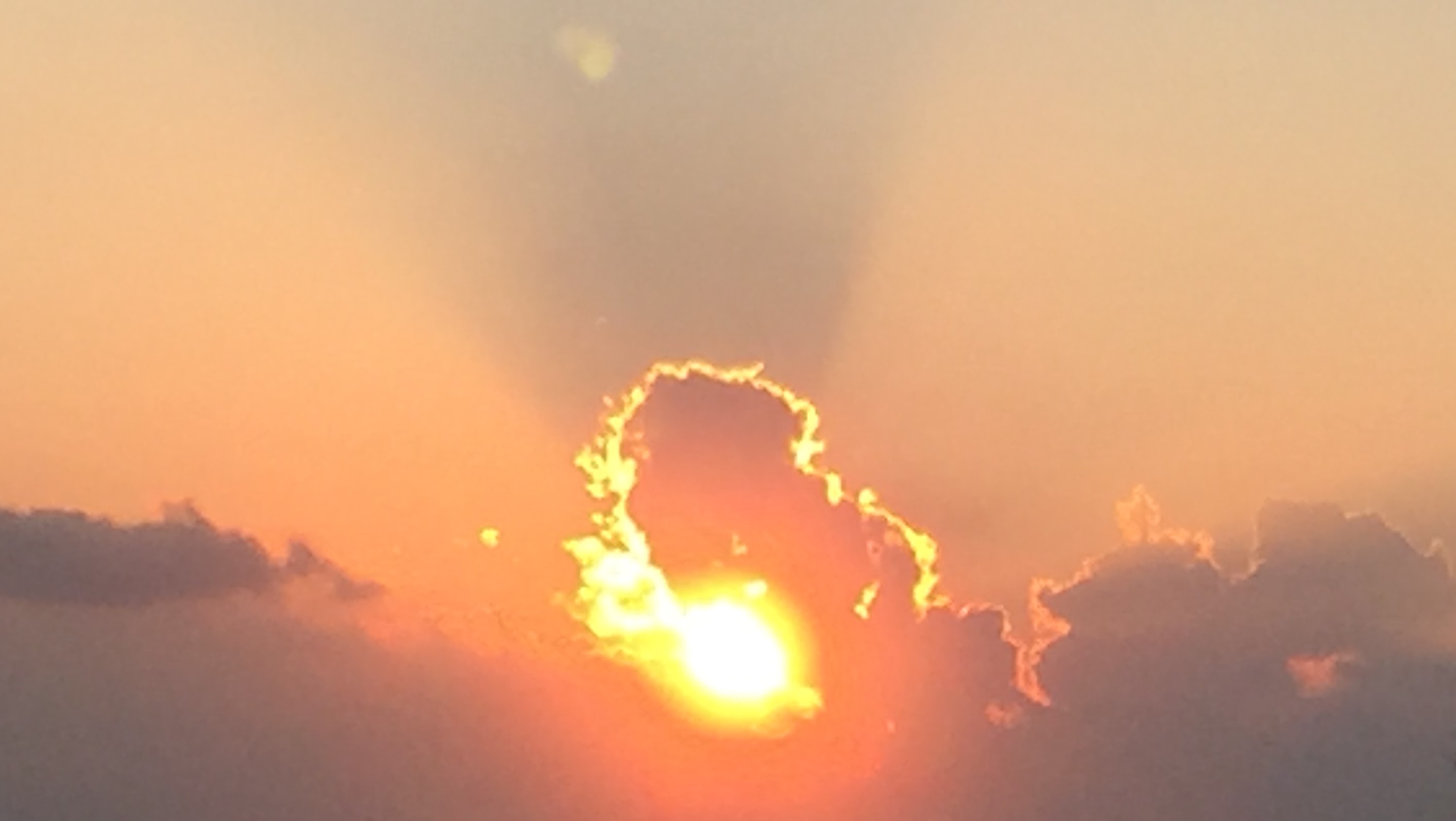
The U.S. Civil War sent economic, political and social shockwaves around the world.
One of my objectives is to understand how those shockwaves were felt throughout Latin America, specifically throughout the republican and imperial governments, the intelligentsia, the diplomatic circles, the street-level multiracial societies, and the military commands. I am especially interested and focused on Mexico’s civil war between supporters of the republican government of Benito Juarez and the supporters of Maximilian, the French puppet emperor. The civil strife began when France invaded in the early 1860s. I am particularly interested in exploring how these two civil wars churned like two hurricanes, feeding off each other, destroying everything within reach, and setting the stage for new eras of democratic government.
I will also explore how both wars resonated in the Texas-Mexico borderlands communities and how people in that region thrived economically, endured privation and tragedy, and reimagined their relationship to their respective republican states. I also hope to better understand through literature and letters how men and women throughout Latin America – and particularly in Mexico — intellectually and politically perceived their own futures as they watched the U.S. republic break apart over slavery and the French invaders attempt to build a European monarchy from the ruins of Mexican democracy.
This evolving list of sources is the first of many steps of an intellectual process to comprehend the scope of relevant literature in this field. It is a very broad attempt to identify important books, essays, articles, memoirs, archival collections and other primary and secondary sources. Studies of communities throughout the Western Hemisphere and Europe are included to inform the larger transnational and transatlantic context I will prepare.
The second step will be an annotated bibliography. That will then lead to a comprehensive review essay analyzing the evolution of the literature, the conversations, and the debates. The essay will also identify potential avenues of future research and the challenges of traveling down those avenues.
I certainly welcome corrections, comments and suggestions as this process continues. You may reach me at this address: remembrance_@hotmail.com.
MEXICO
Aldis, Owen F. “Louis Napoleon and the Southern Confederacy,” North American Review 129 (October 1879): 342-362.
Auer, Jeffrey J. “Lincoln’s Minister to Mexico,” Ohio State Archaeological and Historical Quarterly 57 (1950).
Bacha-Garza, Roseann, Christopher L. Miller and Russell K. Skowronek. The Civil War on the Rio Grande, 1846-1876. College Station: Texas A&M University Press, 2019.
Baguley, David. Napoleon III and His Regime: An Extravaganza. Baton Rouge: Louisiana State University Press, 2000.
Barker, Nancy N. “France, Austria, and the Mexican Venture, 1861-1864,” French Historical Studies (Autumn 1963): 224-245.
—. “Monarchy in Mexico: Harebrained Scheme or Well-Considered Prospect?” The Journal of Modern History 48, no. 1 (March 1976): 51-68.
—. “The Factor of ‘Race’ in the French Experience in Mexico, 1821-1861,” The Hispanic American Historical Review 59, no. 1 (February 1979): 64-80.
Bernstein, Harry. Matias Romero, 1837-1898. Mexico City: Fondo de Cultura Economica, 1973.
Beverton, Alys. “Transborder Capitalism and National Reconciliation: The American Press Reimagines U.S.-Mexico Relations after the Civil War,” The Journal of the Gilded Age and Progressive Era (2022): 40-61.
Bissell, Jonathan. “The Conflicting National Narratives of the 1846-1848 North American Invasion of Mexico,” Historical Geography 45 (2017): 220-251.
Bock, Carl H. Prelude to Tragedy: The Negotiation and Breakdown of the Tripartite Convention of London, October 31, 1861. Philadelphia: University of Pennsylvania Press, 1966.
Brettle, Adrian Robert. “The Fortunes of War: Confederate Expansionist Ambitions During the American Civil War.” PhD diss. University of Virginia, 2014.
Callahan, James Morton. Evolution of Seward’s Mexican Policy. West Virginia University Studies in American History ser. 1, Diplomatic History, nos. 4, 5, and 6. Morgantown, W.Va.: West Virginia University, 1909.
Dabbs, Jack Autrey. The French Army in Mexico, 1861-1867: A Study in Military Government. The Hague: Mouton, 1963.
Downs, Gregory P. “The Mexicanization of American Politics: The United States’ Transnational Path from Civil War to Stabilization.” American Historical Review 117 (April 2012): 408.
Delaney, Robert W. “Matamoros, Port for Texas during the Civil War,” Southwestern Historical Quarterly 4 (April 1955): 473-487.
Flint, Henry M. Mexico Under Maximilian. HardPress Publishing, 2013.
Frazier, Robert W. “Matias Romero and the French Intervention in Mexico.” PhD diss. University of California, Los Angeles, 1941.
—. “Latin American Projects to Aid Mexico during the French Intervention,” The Hispanic American Historical Review 28 (August 1948): 377-388.
Goldwert, Marvin. “Matias Romero and Congressional Opposition to Seward’s Policy toward the French Intervention in Mexico,” The Americas 22, no. 1 (July 1965): 22-40.
Gonzalez-Quiroga, Miguel Angel. “Conflict and Cooperation in the Making of Texas-Mexico Border Society, 1840-1880” in Bridging National Borders in North America: Transnational and Comparative Histories, 33-58, edited by Benjamin H. Johnson and Andrew R. Graybill. Durham, N.C.: Duke University Press, 2010.
Greenberg, Amy S. A Wicked War: Polk, Clay, Lincoln, and the 1846 U.S. Invasion of Mexico. New York: Knopf, 2012.
Hanna, A.J. “The Role of Matthew Fontaine Maury in the Mexican Empire,” Virginia Magazine of History and Biography 55 (April 1947): 105-125.
Hanna, Kathryn Abbey. “The Roles of the South in the French Intervention in Mexico,” The Journal of Southern History 20, no. 1 (February 1954): 3-21.
—. Napoleon III and Mexico: American Triumph over Monarchy. Chapel Hill: University of North Carolina Press, 1971.
—. “Incidents of the Confederate Blockade,” The Journal of Southern History 11: 222.
Hardy, William E. “South of the Border: Ulysses S. Grant and the French Intervention.” Civil War History 54, no. 1 (March 2008): 63-86.
Hart, John Mason. Empire and Revolution: The Americans in Mexico since the Civil War. Berkeley: University of California Press, 2002.
Henderson, Timothy J. A Glorious Defeat: Mexico and Its War with the United States. New York: Hill and Wang, 2008.
Horgan, James J. “A Confederate Bull in a Mexican China Shop” in Divided We Fall: Essays on Confederate Nation Building, edited by John M. Belohlavek. Saint Leo, Fla: Saint Leo College Press, 1991.
Hudson, Linda S. Mistress of Manifest Destiny: A Biography of Jane McManus Storm Cazneau, 1807-1878. Austin: Texas State Historical Society, 2001.
Ibsen, Kristine. Maximilian, Mexico, and the Invention of Empire. Nashville, Tennessee: Vanderbilt University Press, 2010.
Irby, James. Backdoor at Bagdad: The Civil War on the Rio Grande. El Paso: Texas Western Press, 1977.
Jonas, Raymond. Habsburgs on the Rio Grande: The Rise and Fall of the Second Mexican Empire. Cambridge, MA: Harvard University Press, 2024.
Kiser, William S. “We Must Have Chihuahua and Sonora: Civil War Diplomacy in the U.S. Mexico Borderlands,” The Journal of Civil War History 9, no. 2 (June 2019): 196-222.
McAllen, M.M. Maximilian and Carlotta, Europe’s Last Empire in Mexico. San Antonio: Trinity University Press, 2014.
McCormack, Richard. “James Watson Webb and the French Withdrawal from Mexico,” The Hispanic American Historical Review 31 (May 1951): 274-286.
Mahoney, Harry Thayer., and Marjorie Locke Mahoney. Mexico and the Confederacy: 1860-1867. San Francisco, California: Austin & Winfield, 1998.
Malloy, George Wallace. “The United States and the French Intervention in Mexico, 1861-1867.” PhD diss. University of California, Berkeley, 1937
Martin, Percy F. Maximilian in Mexico: The Story of the French Intervention (1861-1867). New York: C. Scribner’s Sons, 1914.
“The Mexico Question,” Harper’s Weekly, September 12, 1863, 578.
Mijangos y Gonzalez, Pablo. “Guerra Civil y Estado-Nacion en Norteamerica (1848-1867),” in El poder y la sangre: Guerra, Estado y nacion en la decada de 1860, edited by Guillermo Palacios and Erika Pani. Mexico City: El Colegio de Mexico, 2014: 43-62.
Miller, Robert Ryal. “Californians against the Emperor,” California Historical Society Quarterly 37 (1958): 192-214.
—. “The American Legion of Honor in Mexico,” Pacific Historical Review 30 (1961): 229-241.
—. “Gaspar Sanchez Ochoa: A Mexican Secret Agent in the United States,” The Historian 23 (1961): 316-329.
—. “Placido Vega: A Mexican Secret Agent in the United States,” The Americas 19 (1962): 137-148.
—. “Lew Wallace and the French Intervention in Mexico,” Indiana Magazine of History 59 (1963): 31-50.
—. “Matias Romero: Mexican Minister to the United States during the Juarez-Maximilian Era,” The Hispanic American Historical Review, 45 (May 1965): 228-245.
—. “Arms across the Border: United States Aid to Juarez during the French Intervention in Mexico,” Transactions of the American Philosophical Society, n.s, 63, no. 6 (1973): 1-68.
Monaghan, Jay. Abraham Lincoln Deals with Foreign Affairs: A Diplomat in Carpet Slippers. Lincoln, Neb.: Bison Books, 1997.
Mora-Torres, Juan. The Making of the Mexican Border: The State, Capitalism, and Society and Nuevo Leon, 1848-1910. Austin: University of Texas Press, 2001.
Pani, Erika. “Dreaming of a Mexican Empire: The Political Projects of the Imperialistas,” The Hispanic American Historical Review 82, no. 1 (2002): 1-31.
—. “Law, Allegiance, and Sovereignty in Civil War Mexico, 1857-1867,” The Journal of the Civil War Era 7, no. 4 (December 2017): 570-596.
—. Torn Asunder: Republican Crises and Civil Wars in the United States and Mexico, 1848–1867. Chapel Hill: The University of North Carolina Press, 2025.
Resendez, Andres. “North American Peonage,” The Journal of the Civil War Era 7, no. 4 (December 2017): 597 619.
Ridley, Jasper. Maximilian and Juarez. London: Constable, 2001.
Rippy, J. Fred. The United States and Mexico. New York, 1926.
—. “Mexican Projects of the Confederates,” Southwestern Historical Quarterly 22: 219-317.
Rister, Carl Coke. “Carlota: A Confederate Colony in Mexico,” The Journal of Southern History 11 (February 1945): 33-50.
Roeder, Ralph. Juarez and His Mexico: A Biographical History. New York: Viking, 1947.
Rolle, Andrew F. The Lost Cause: The Confederate Exodus to Mexico. Norman: University of Oklahoma Press, 1965.
Romero, Matias. A Mexican View of America in the 1860s: A Foreign Diplomat Describes the Civil War and Reconstruction, ed. and trans. Thomas D. Schoonover. London: Associated University Presses, 1991.
Salm-Salm, Felix C. My Diary in Mexico in 1867 Including the Last Days of the Emperor Maximilian. London, 1868.
Schoonover, Thomas. “Mexican Affairs and the Impeachment of President Johnson,” East Tennessee Historical Society’s Publications 46 (1974): 76-93.
—. Dollars Over Dominion: The Triumph of Liberalism in Mexican-United States Relations, 1861-1867. Baton Rouge: Louisiana State University Press, 1978.
—., ed., Mexican Lobby: Matias Romero in Washington 1861-1867. Lexington: University of Kentucky Press, 1986.
—., “Napoleon Is Coming! Maximilian Is Coming? The International History of the Civil War in the Caribbean Basi,” in The Union, The Confederacy, and the Atlantic Rim, edited by Robert E. May. West Lafayette, Ind.: Purdue University Press, 1995. 101-130.
Smith, Gene. Maximilian and Carlota: A Tale of Romance and Tragedy. Morrow, 1973.
St. John, Rachel. “The Unpredictable America of William Gwin: Expansion, Secession, and the Unstable Borders of Nineteenth Century North America,” The Journal of the Civil War Era 6 no. 1 (March 2016): 56-84.
Thompson, Jerry Don. Mexican Texans in the Union Army. El Paso: Texas Western Press, 1986.
—. “Mutiny and Desertion on the Rio Grande: The Strange Saga of Captain Adrian J. Vidal,” Military History XII, no. 3.
—. “A Stand Along the Border: Santos Benavides and the Battle of Laredo,” Civil War Illustrated (August 1980).
—, ed. Juan Cortina and the Texas-Mexico Frontier: 1859-1877. El Paso: University of Texas at El Paso Press, 1994.
—. Cortina: Defending the Mexican Name in Texas. College Station: Texas A&M University Press, 2007.
Truett, Samuel. Fugitive Landscapes: The Forgotten History of the U.S.-Mexico Borderlands. New Haven: Yale University Press, 2006.
Tyler, Ronnie C. Santiago Vidaurri and the Southern Confederacy. Austin: Texas State Historical Association, 1973.
Tyrner-Tyrnauer, A.R. Lincoln and the Emperors. New York: Harcourt, Brace & World, 1962.
Wahlstrom, Todd W. The Southern Exodus to Mexico: Migration across the Borderlands after the American Civil War. Lincoln: University of Nebraska Press, 2015.
Waite, Kevin. “Jefferson Davis and Proslavery Visions of Empire in the Far West,” The Journal of the Civil War Era 4 (December 2016): 554-557.
Wasserman, Mark. Everyday Life and Politics in Nineteenth Century Mexico: Men, Women, and War. Albuquerque: University of New Mexico Press, 2000.
Wilson, William Moss. “Lincoln’s Mexican Visitor.” Disunion: The New York Times. January 17, 2011. Accessed on January 25, 2023. https://archive.nytimes.com/opinionator.blogs.nytimes.com/2011/01/17/lincolns-mexican-visitor.
CANADA
Bachand, Marise. “Disunited Daughters of the Confederates: Creoles and Canadians at the Intersection of Nations, States, and Empires.” The Journal of the Civil War Era 7, no. 4 (December 2017): 541-569.
Buckner, Phillip. “‘British North America and a Continent in Dissolution:’ ” The American Civil War in the Making of the Canadian Confederation,” The Journal of the Civil War Era 7, no. 4 (December 2017): 512-540.
Dashew, Doris W. “The Story of an Illusion: The Plan to Trade the Alabama Claims for Canada,” Civil War History 15 (December 1969): 332-348.
Jenkins, Danny R. “British North Americans Who Fought in the American Civil War: 1861-1865.” MA thesis, University of Ottawa, 1993.
Morton, W.L. “British North America and a Continent in Dissolution, 1861-71.” History 47 (January 1962): 139-156.
Reid, Richard M. African Canadians in Union Blue: Volunteering for the Cause in the Civil War. Vancouver: University of British Colombia Press, 2014.
Winks, Robin. Canada and the United States: The Civil War Years. Montreal: McGill-Queen’s University Press, 1960.
CHILE
Burr, Robert N. By Reason or Force: Chile and the Balancing of Power in South America, 1830-1905. Berkeley: University of California Press, 1967.
PERU
Blanchard, Peter. Slavery and Abolition in Early Republican Peru. Wilmington, DE: Scholarly Resources Books, 1992.
Eichhorn, Niels. “The Many South Carolinas in the Americas,” Muster: The Journal of the Civil War Era. May 2, 2023. Accessed on May 23, 2023. https://www.journalofthecivilwarera.org/2023/05/the-many-south-carolinas-in-the-americas.
“Emancipation Declared in Peru,” Anti-Slavery Reporter, July 2, 1855, 157.
Love, Thomas F. The Independent Republic of Arequipa: Making Regional Culture in the Andes. Austin: University of Texas Press, 2017.
GENERAL SOUTH AMERICA
Ferris, Nathan L. “The Relations of the United States with South America during the Civil War,” The Hispanic American Historical Review 21 (February 1941): 51-78.
Fitz, Caitlin A. “The Hemispheric Dimensions of Early U.S. Nationalism: The War of 1812, Its Aftermath, and Spanish American Independence,” The Journal of American History 102 (September 2015): 356–379.
—. Our Sister Republics: The United States in an Age of Revolutions. New York: Norton, 2016.
Gobat, Michel. “The Invention of Latin America: The Transnational History of Anti-Imperialism, Democracy, and Race,” American Historical Review 118 (December 2013): 1345-1375.
Joseph, Gilbert M., Catherine C. Legrand, and Ricardo D. Salvatore, eds. Close Encounters of Empire: Writing the Cultural History of U.S.-Latin American Relations. Durham, N.C.: Duke University Press, 1998.
Kelly, Patrick J. “The Cat’s-Paw: Confederate Ambitions in Latin America” in American Civil Wars: The United States, Latin America, Europe and the Crisis of the 1860s. Edited by Don H. Doyle. Chapel Hill: University of North Carolina Press, 2017.
—. “The Lost Continent of Abraham Lincoln,” The Journal of the Civil War Era 9, no. 2 (June 2019): 223-248.
May, Robert E. Manifest Destiny’s Underworld: Filibustering in Antebellum America. Chapel Hill: University of North Carolina Press, 2002.
—. Slavery, Race and Conquest in the Tropics: Lincoln, Douglass and the Future of Latin America. New York: Cambridge University Press, 2013.
—. “The Irony of Confederate Diplomacy; Visions of Empire, the Monroe Doctrine, and the Quest for Nationhood,” The Journal of Southern History 81 (February 2017): 69-106.
Rothera, Evan C. Civil Wars and Reconstructions in the Americas: The United States Mexico and Argentina, 1860-1880. Baton Rouge: Louisiana State University Press, 2022.
Sanders, James E. The Vanguard of the Atlantic World: Creating Modernity, Nation, and Democracy in Nineteenth Century Latin America. Durham, N.C.: Duke University Press, 2014.
Scott, Rebecca, et. al. The Abolition of Slavery and the Aftermath of Emancipation in Brazil. Durham, N.C.: Duke University Press, 1988.
Tenorio-Trillo, Mauricio. Latin America: The Allure and Power of an Idea. Chicago: University of Chicago Press, 2017.
CUBA
Chaffin, Tom. Fatal Glory: Narciso López and the First Clandestine U.S. War Against Cuba. Charlottesville: University Press of Virginia, 1996.
Corwin, Arthur. Spain and the Abolition of Slavery in Cuba, 1817-1886. Austin: University of Texas Press, 1967.
Levander, Caroline. “Confederate Cuba,” American Literature 78 (December 2006): 821-845
Scott, Rebecca. Slave Emancipation in Cuba: The Transition to Free Labor, 1860-1899. Princeton: Princeton University Press, 1985.
—. Degrees of Freedom: Louisiana and Cuba After Slavery. Cambridge, MA: Harvard University Press, 2005.
GENERAL SPANISH CARIBBEAN
González-Quintero, Nicolás. “Empire, Slavery, and Exile in the 19th Century Spanish Caribbean.” PhD diss. University of Texas at Austin, 2020.
May, Robert E. The Southern Dream of a Caribbean Empire, 1854-1861. Baton Rouge: Louisiana State University Press, 1973.
Rugemer, Edward Bartlett. The Problem of Emancipation: The Caribbean Roots of the American Civil War. Baton Rouge: Louisiana State University Press, 2008.
Schmidt-Nowara, Christopher. Empire and Antislavery: Spain, Cuba, and Puerto Rico, 1833-1870. Pittsburgh: University of Pittsburgh Press, 1999.
—. “From Aggression to Crisis: The Spanish Empire in the 1860s” in American Civil Wars: The United States, Latin America, Europe and the Crisis of the 1860s. Edited by Don H. Doyle. Chapel Hill: University of North Carolina Press, 2017.
HAITI
Clavin, Matthew. “A Second Haitian Revolution: John Brown, Toussaint Louverture and the Making of the American Civil War,” Civil War History 54 no. 2 (June 2008): 117-145.
HONDURAS
Coryell, Janet L. “’The Lincoln Colony:’ Aaron Columbus Burr’s Proposed Colonization of British Honduras,” Civil War History 43, no. 1 (March 1997): 5-16.
NICARAGUA
Gobat, Michel. Confronting the American Dream: Nicaragua under U.S. Imperial Rule. Durham, N.C.: Duke University Press, 2005.
BRITISH EMPIRE
Barnes, James J., and Patience P. Barnes. The American Civil War Through British Eyes: Dispatches from British Diplomats. Kent, OH: Kent University Press, 2005.
Blackett, R.J.M. Divided Hearts: Britain and the American Civil War. Baton Rouge: Louisiana State University Press, 2000.
Blume, Kenneth J. “Coal and Diplomacy in the British Caribbean during the Civil War,” Civil War History 41 no. 2 (June 1995): 116-141.
Campbell, Duncan Andrew. English Public Opinion and the American Civil War. Woodbridge, Suffolk: Royal Historical Society, 2003.
Dubrulle, Hugh. “A Military Legacy of the Civil War: The British Inheritance,” Civil War History 49, no. 2 (June 2003): 153-180.
—. Ambivalent Nation: How Britain Imagined the American Civil War. Baton Rouge: Louisiana State University Press, 2018.
Elkins, Caroline. Legacy of Violence: A History of the British Empire. New York: Knopf, 2022.
Foner, Philip. British Labor and the American Civil War. New York: Holmes & Meier, 1981.
Foreman, Amanda. A World on Fire: Britain’s Crucial Role in the American Civil War. New York: Random House, 2010.
Hughes, Michael F. “’The Personal Observations of a Man of Intelligence:’ Sir James Fergusson’s Visit to North America, 1861,” Civil War History 45, no. 3 (September 1999): 238-247.
Jenkins, Brian. Britain and the War for the Union. 2 vols. Montreal, Quebec: McGill-Queen’s University Press, 1974-1960.
Jones, Howard. Union in Peril: The Crisis over British Intervention in the Civil War. Chapel Hill: University of North Carolina Press, 2012.
Kinser, Brent E. The American Civil War in the Shaping of British Democracy. Farnham: Ashgate, 2011.
Logan, Frenise. “India – Britain’s Substitute for American Cotton, 1861-1865,” Journal of Southern History 24 (November 1958): 472-480.
Meyers, Philip. Caution and Cooperation: The American Civil War in British-American Relations. Kent, Ohio: Kent State University Press, 2008.
Mulligan, William. “Mobs and Diplomats: The Alabama Affair and British Diplomacy, 1865-1872” in The Diplomats’ World: A Cultural History of Diplomacy, 1815-1914, eds. Markus Mosslang and Torsten Riotte (Oxford: Oxford University Press, 2008), 105-132.
Myers, Phillip E. Caution and Cooperation: The American Civil War in British American Relations. Kent, Ohio: Kent State University Press, 2008.
O’Connor, Peter. American Sectionalism in the British Mind, 1832-1863. Baton Rouge: Louisiana State University Press, 2017.
Tal, Nimrod., “Putting Out the ‘Embers of This Resentment:’ Anglo-American Relations and the Rewriting of the British Response to the American Civil War, 1914-1925,” The Journal of the Civil War Era 8, no. 1 (March 2018): 87-110.
FRANCE
Belanger, Damien-Claude. Franco-Americans in the Civil War Era (1861-1865). Montreal: n.p., 2001.
Case, Lynn M., and Warren F. Spencer. The United States and France: Civil War Diplomacy. Philadelphia: University of Pennsylvania Press, 1970.
Curtis, Eugene M. “American Opinion of the French Nineteenth Century Revolutions,” American Historical Review 29 (January 1924): 25-60.
Gavronsky, Serge. French Liberals and the American Civil War. New York: The Humanities Press, 1968.
Gray, Walter D. Interpreting American Democracy in France: The Career of Edouard Laboulaye, 1811-1883. Newark: University of Delaware Press, 1994.
Katz, Philip M. From Appomattox to Montmartre: Americans and the Paris Commune. Cambridge, MA: Harvard University Press, 1998.
GERMANY
McGrane, Reginald C. “The American Position on the Revolution of 1848 in Germany,” Historical Outlook 11 (1920): 333-339.
SPAIN
Bowen, Wayne S. Spain and the American Civil War. Columbia: University of Missouri Press, 2011.
ITALY
Adams, Charles Francis. “Lincoln’s Offer to Garibaldi,” Proceedings of the Massachusetts Historical Society 41 (1907-1908): 315-393.
Dal Lago, Enrico. “Lincoln, Cavour, and National Unification: American Republicanism and Italian Liberal Nationalism in Comparative Perspective,” The Journal of Civil War Era 3, no. 1 (March 2013): 85-113.
—. Civil War and Agrarian Unrest: The Confederate South and Southern Italy. New York: Cambridge University Press, 2018.
Doyle, Don H. Nations Divided: America, Italy and the Southern Question. Athens: University of Georgia Press, 2002.
Gay, H. Nelson. “Lincoln’s Offer of a Command to Garibaldi: Light on a Disputed Point of History,” Century Illustrated Monthly Magazine 75, no. 1 (November 1907): 63-74.
Gemme, Paola. Domesticating Foreign Struggles: The Italian Risorgimento and Antebellum American Identity. Athens: University of Georgia Press, 2005.
CIVIL WAR ERA DIPLOMACY / FOREIGN POLICY
Baker, George., ed. The Works of William H. Seward in The Diplomatic History of the War for the Union. Boston: Houghton, Mifflin, 1884.
Bonner, Robert E. “Slavery, Confederate Diplomacy, and the Racialist Mission of Henry Hotze,” Civil War History 51, no. 3 (September 2005): 288-316.
Carwardine, Richard, and Jay Sexton, eds. The Global Lincoln. New York: Oxford University Press, 2011.
Chaffin, Tom. “Abe Lincoln and Filibuster Fever.” Disunion: The New York Times, January 10, 2011. Accessed on January 25, 2023. https://archive.nytimes.com/opinionator.blogs.nytimes.com/2011/01/10/abe-lincoln-and-filibuster-fever.
Crook, David Paul. The North, the South, and the Powers, 1860-1865. New York: Wiley, 1974.
—. Diplomacy during the Civil War. New York: Wiley, 1975.
Ferris, Norman B. Desperate Diplomacy: William H. Seward’s Foreign Policy, 1861. Knoxville: University of Tennessee Press, 1976.
Fry, Joseph A. Henry Sanford: Diplomacy and Business in Nineteenth-Century America. Reno: University of Nevada Press, 1982.
Green, Jennifer R., and Patrick M. Kirkwood. “Reframing the Antebellum Democratic Mainstream: Transatlantic Diplomacy and the Career of Pierre Soulé,” Civil War History 61, no. 3 (September 2015): 212-251.
Hubbard, Charles M. The Burden of Confederate Diplomacy. Knoxville: University of Tennessee Press, 1998.
—. “James Mason, the ‘Confederate Lobby’ and the Blockade Debate of March 1862,” Civil War History 45, no. 3 (September 1999): 223-237.
Jones, Howard. Abraham Lincoln and a New Birth of Freedom: The Union and Slavery in the Diplomacy of the Civil War. Lincoln: University of Nebraska Press, 1999.
—. Blue and Gray Diplomacy: A History of Union and Confederate Foreign Relations. Chapel Hill: University of North Carolina Press, 2016.
Karp, Matthew. This Vast Southern Empire: Slaveholders at the Helm of American Foreign Policy. Cambridge, MA: Harvard University Press, 2016.
Mattson, Gregory Louis. “Pariah Diplomacy: The Slavery Issue in Confederate Foreign Relations.” PhD diss. University of Southern Mississippi, 1999.
Owsley, Frank Lawrence. King Cotton Diplomacy: Foreign Relations of the Confederate States of America. Chicago: University of Chicago Press, 1959.
Palen, Marc-William. “The Civil War’s Forgotten Transatlantic Tariff Debate and the Confederacy’s Free Trade Diplomacy,” The Journal of the Civil War Era. 3, no. 1 (March 2013): 35-61.
Paolino, Ernest. The Foundations of the American Empire: Willian Henry Seward and U.S. Foreign Policy. Ithaca, N.Y.: Cornell University Press, 1973.
Peraino, Kevin. Lincoln in the World: The Making of a Statesman and the Dawn of American Power. New York: Crown, 2013.
Perkins, Dexter. The Monroe Doctrine, 1826-1867. Gloucester, Mass.: Peter Smith, 1965.
Quigley, Paul, and James Hawdon, eds. Reconciliation After Civil War. Global Perspectives. Routledge Press, 2018.
Robinson, Michael. “William Henry Seward and the Onset of the Secession Crisis,” Civil War History 59, no. 1 (March 2013): 32-66.
Sexton, Jay. “Towards a Synthesis of Foreign Relations in the Civil War Era, 1848-1877,” American Nineteenth Century History. 5 (Fall 2004): 50-73.
—. The Monroe Doctrine: Empire and Nation in Nineteenth-Century America. New York: Hill & Wang, 2012.
—. “William H. Seward in the World,” The Journal of the Civil War Era 4, no. 3 (September 2014): 398-430.
—. “The Civil War and U.S. World Power” in American Civil Wars: The United States, Latin America, Europe and the Crisis of the 1860s. Edited by Don H. Doyle. Chapel Hill: University of North Carolina Press, 2017.
Seward, William H., and Olive Risley Seward. William H. Seward’s Travels around the World. New York: D. Appleton, 1873
Stahr, Walter. Seward: Lincoln Indispensable Man. New York: Simon & Schuster, 2012.
Taylor, John. William Henry Seward: Lincoln’s Right Hand. New York: HarperCollins, 1991.
Tyrner-Tyrnauer, A.R. Lincoln and the Emperors. New York: Harcourt Brace, 1962.
Warren, Gordon H. Fountain of Discontent: The Trent Affair and Freedom of the Seas. Boston: Northeastern University Press, 1981.
Whitaker, Arthur P. “The Origins of the Western Hemisphere Idea,” Proceedings of the American Philosophy Society 98 (October 15, 1954): 323.
TRANSNATIONAL HISTORY – ANTEBELLUM, WARTIME, POSTWAR
Ayers, Edward L. “The American Civil War, Emancipation, and Reconstruction on the World Stage,” OAH Magazine of History 20, no. 1 (January 2006): 54-61.
Beckert, Sven. “Emancipation and Empire: Reconstructing the Worldwide Web of Cotton Production in the Age of the American Civil War,” American Historical Review 109 (December 2004): 1405-1438.
Bolton, Herbert E. “The Epic of Greater America,” American Historical Review 38 (April 1933): 448-474.
Bonner, Robert E. “The Salt Water Civil War: Thalassological Approaches, Ocean-Centered Opportunities,” The Journal of the Civil War Era 6, no. 2 (June 2016): 243-267.
Brettle, Adrian. Colonial Ambitions: Confederate Planning for a Post-Civil War World. Charlottesville: University of Virginia Press, 2020.
Brown, Charles H. Agents of Manifest Destiny: The Lives and Times of the Filibusters. Chapel Hill: University of North Carolina Press, 1980.
Cummins, Light T. “Getting beyond Bolton: Columbian Consequences and the Spanish Borderland, A Review Essay,” New Mexico Historical Review 70 (April 1995): 201-215.
Curti, Merle. “The Impact of the Revolutions of 1848 on American Thought,” Proceedings of the American Philosophical Society 93 (1949): 209-215.
Davis, William C. “Confederate Exiles.” American History Illustrated 5, no. 3 (June 1970): 30-43.
Doyle, Don H., ed. Secession as an International Phenomenon: From America’s Civil War to Contemporary Separatist Movements. Athens: University of Georgia Press, 2010.
—. The Cause of All Nations: An International History of the American Civil War. New York: Basic Books, 2015.
Egerton, Douglas R. “Rethinking Atlantic Historiography in a Postcolonial Era: The Civil War in a Global Perspective,” The Journal of the Civil War Era 1, no. 1 (March 2011): 79-95.
Eichhorn, Niels. “North Atlantic Trade in the Mid-Nineteenth Century: A Case for Peace during the American Civil War,” Civil War History 1, no. 2 (June 2015): 138-172.
Fleche, Andre. “The American Civil War in the Age of Revolution,” South Central Review 33 no. 1 (Spring 2016): 5-20.
—. Revolution of 1861: The American Civil War in the Age of Nationalist Conflict. Chapel Hill: University of North Carolina Press, 2011.
Graber, Samuel S. “Twice Divided Nation: The Civil War and National Memory in the Transatlantic World,” 2 vols. (PhD diss., University of Iowa, 2008).
Graybill, Andrew R. “Civil Wars and Their Soldiers in the Southwest Borderlands,” Reviews in American History 46, no. 4 (December 2018): 586-591.
Greenberg, Amy S. Manifest Manhood and Antebellum American Empire. New York: Cambridge University Press, 2005.
—. Manifest Destiny and American Territorial Expansion: A Brief History with Documents. New York: Bedford/St. Martin’s, 2012.
Guterl, Matthew Pratt. American Mediterranean: Southern Slaveholders in the Age of Emancipation. Cambridge, MA: Harvard University Press, 2008.
Hahn, Steven. “What Sort of World Did the Civil War Make?” in The World the Civil War Made. Edited by Gregory P. Downs and Kate Masur. Chapel Hill: University of North Carolina Press, 2015.
Hammond, John Craig. “Slavery, Sovereignty, and Empires: North American Borderlands and the American Civil War,” The Journal of the Civil War Era 4, no 2 (June 2014): 264-298.
Honeck, Mischa. “Men of Principle: Gender and the German American War for the Union,” The Journal of the Civil War Era 5, no. 1 (March 2015): 38-67.
Johnson, Benjamin H., and Andrew R. Graybill, eds. Bridging National Borders in North America: Transnational and Comparative Histories. Durham, N.C.: Duke University Press, 2010.
Kaye, Anthony E. “The Second Slavery: Modernity in the Nineteenth-Century South and the Atlantic World,” The Journal of Southern History 75 (August 2009): 627-50.
Keehn, David C. Knights of the Golden Circle: Secret Empire, Southern Secession, Civil War. Baton Rouge: Louisiana State University Press, 2013.
Kelly, Patrick J. “The North American Crisis of the 1860s,” The Journal of the Civil War Era 2, no. 3 (September 2012): 337-368.
—. “1848 and the Transnational Turn in Civil War History,” The Journal of the Civil War Era 4, no. 3 (September 2014): 431-443.
LaFeber, Walter. The New Empire: An Interpretation of American Expansion, 1860-1898. Ithaca, N.Y.: Cornell University Press, 1963.
Lewis, Kay Wright. A Curse upon the Nation: Race, Freedom and Extermination in America and the Atlantic World. Athens: University of Georgia Press, 2017.
Lonn, Ella. Foreigners in the Confederacy. Chapel Hill: University of North Carolina Press, 2002.
McDaniel, W. Caleb, and Bethany L. Johnson. “New Approaches to Internationalizing the History of the Civil War Era: An Introduction,” The Journal of the Civil War Era 2, no. 2 (June 2012): 145-150.
McPherson, James. “‘The Whole Family of Man:’ Lincoln and the Last Best Hope Abroad” in The Union, the Confederacy and the Atlantic Rim. Edited by Robert May. West Lafayette, IN: Purdue University Press, 1995.
Mahin, Dean P. One War at a Time: The International Dimensions of the U.S. Civil War. Washington, D.C.: Brassey’s, 1999.
May, Robert E., ed. The Union, the Confederacy, and the Atlantic Rim. West Lafayette, Ind.: Purdue University Press, 1995.
Morrison, Michael A. “American Reaction to European Revolutions, 1848-1852: Sectionalism, Memory, and the Revolutionary Heritage,” Civil War History 49, no. 2 (June 2003): 111-132.
Potter, David M. The South and the Sectional Conflict. Baton Rouge: Louisiana State University Press, 1968.
—. “Civil War,” in The Comparative Approach to American History. Edited by C. Van Woodward. New York: Basic Books, 1968.
Roberts, Timothy Mason. Distant Revolutions: 1848 and the Challenge to American Exceptionalism. Charlottesville: University of Virginia Press, 2009.
Rood, Daniel B. The Reinvention of Atlantic Slavery: Technology, Labor, Race, and Capitalism in the Greater Caribbean. New York: Oxford University Press, 2017.
Schoen, Brian. The Fragile Fabric of Union: Cotton, Federal Politics, and the Global Origins of the Civil War. Baltimore: Johns Hopkins University Press, 2009.
—. “The Fates of Republics and Empires Hang in the Balance: The United States and Europe during the Civil War Era,” OAH Magazine of History 27, no. 2 (April 2013): 45.
Sexton, Jay. “Steam Transport, Sovereignty, and Empire in North America, circa 1850-1885,” The Journal of the Civil War Era 7, no. 4 (December 2017): 620-647.
Tucker, Ann L. Newest Born of Nations: European Nationalist Movements and the Making of the Confederacy. Charlottesville: University of Virginia Press, 2020.
Walther, Karine V. Sacred Interests: The United States and the Islamic World, 1821-1921. Chapel Hill: University of North Carolina Press, 2015.
Weeks, William Earl. Building the Continental Empire: American Expansion from Revolution to the Civil War. Chicago: Ivan R. Dee, 1996.
Zimmerman, Andrew. “From the Rhine to the Mississippi: Property, Democracy, and Socialism in the American Civil War,” The Journal of the Civil War Era 5, no. 1 (March 2015): 3-37.
—. “From the Second American Revolution to the First International and Back Again: Marxism, the Popular Front, and the American Civil War” in The World the Civil War Made. Edited by Gregory P. Downs and Kate Masur. Chapel Hill: University of North Carolina Press, 2015.
GENERAL WORKS
Baptist, Edward E. The Half Has Never Been Told: Slavery and the Making of American Capitalism. New York: Basic Books, 2014.
Bayly, C.A. The Birth of the Modern World, 1780-1914: Global Connections and Comparisons. Malden, Mass.: Blackwell, 2004: 165-166.
Beckert, Sven, “Merchants and Manufacturers in the Antebellum North” in Ruling America: A History of Wealth and Power in a Democracy. Edited by Steve Fraser and Gary Gerstle. Cambridge, MA: Harvard University Press, 2005.
—. Empire of Cotton: A Global History. New York: Knopf, 2014.
—. Capitalism: A Global History. New York: Penguin, 2025.
Bender, Thomas, ed. Rethinking American History in a Global Age. Berkeley: University of California Press, 2002.
—. A Nation Among Nations: America’s Place in World History. New York: Hill and Wang, 2006.
Bensel, Richard Franklin. Yankee Leviathan: The Origins of Central State Authority in America, 1859-1877. New York: Cambridge University Press, 1990.
Blair, William. “Imagining a Hemispheric Greater America,” The Journal of the Civil War Era 7, no. 4 (December 2017): 507-511.
Bledsoe, Andrew S. “Beyond the Chessboard of War: Contingency, Command and Generalship in Civil War Military History,” The Journal of the Civil War Era 9, no. 2 (June 2019): 275-301.
Boritt, Gabor S., Mark E. Neely Jr., and Harold Holzer, “The European Image of Abraham Lincoln,” Winterthur Portfolio 21 (Summer-Autumn 1986): 158-160.
Browning, Judkin, and Timothy Silver. “Nature and Human Nature: Environmental Influences on the Union’s Failed Peninsula Campaign, 1862.” The Journal of the Civil War Era 8, no. 3 (September 2018): 388-415.
Colby, Robert. “Negroes Will Bear Fabulous Prices.” The Journal of the Civil War Era 10, no. 4 (December 2020): 439-468.
Davis, David Brion. Inhuman Bondage: The Rise and Fall of Slavery in the New World. New York: Oxford University Press, 2006.
Faust, Drew Gilpin. Mothers of Invention: Women of the Slaveholding South in the American Civil War. Durham, N.C.: University of North Carolina Press, 2004.
Fogel, Robert William. Without Consent or Contract: The Rise and Fall of American Slavery. New York: W.W. Norton & Company, 1994.
Foster, Gaines M. “What’s Not in a Name.” The Journal of the Civil War Era 8, no. 3 (September 2018): 416-454.
Geyer, Michael, and Charles Bright. “Global Violence and Nationalizing Wars in Eurasia and America: The Geo Politics of War in the Mid-Nineteenth Century,” Comparative Studies in History and Society 38, no. 4, (October 1996): 619-657.
Goldfield, David. America Aflame: How the Civil War Created a Nation. New York: Bloomsbury, 2011.
Grandin, Greg. “The Liberal Tradition in the Americas: Rights, Sovereignty, and the Origins of Multilateralism,” American Historical Review 117 (February 2012): 68-91.
Greene, Jack P., and Philip D. Morgan, eds. Atlantic History: A Critical Reappraisal. New York: Oxford University Press, 2009.
Grimsley, Mark, and Brooks D. Simpson, eds. The Collapse of the Confederacy. Lincoln: University of Nebraska Press, 2001.
Guterl, Matthew. American Mediterranean: Southern Slaveholders in the Age of Emancipation. Cambridge, MA: Harvard University Press, 2008.
Hamalainen, Pekka. The Comanche Empire. New Haven: Yale University Press, 2009.
—, and Samuel Truett. “On Borderlands,” The Journal of American History 98, no. 2 (September 2011): 338-361.
Hunt, Aurora. The Army of the Pacific: Its Operations in California, Texas, Arizona, New Mexico, Utah, Nevada, Oregon, Washington, Plains Region, Mexico, etc. 1860-1866. Glendale, CA: Arthur H. Clark, 1951.
Hunt, Jeffrey William. The Last Battle of the Civil War: Palmetto Ranch. Austin: University of Texas Press, 2002.
Johnson, Walter. Soul By Soul: Life Inside the Antebellum Slave Market. Cambridge, MA: Harvard University Press, 2000.
—. River of Dark Dreams: Slavery and Empire in the Cotton Kingdom. Cambridge, MA.: Belknap Press of Harvard University Press, 2013.
Jones, Howard. Crucible of Power: A History of American Foreign Relations to 1913. Lanham, MD: Rowman & Littlefield, 2009.
Kerby, Robert L. Kirby Smith’s Confederacy: The Trans-Mississippi South, 1863-1865. New York: Columbia University Press, 1972.
Lang, Andrew F. “Memory, the Texas Revolution, and Secession: The Birth of Confederate Nationalism in the Lone Star State,” Southwestern Historical Quarterly 114, no. 1 (July 2010): 21-36.
Langley, Lester D. The Americans in the Age of Revolution, 1750-1850. New Haven: Yale University Press, 1996.
Levine, Bruce. The Spirit of 1848: German Immigrants, Labor Conflict, and the Coming of the Civil War. Chicago: University of Illinois Press, 1992.
Lincoln, Abraham. The Collected Works of Abraham Lincoln. Edited by Roy P. Basler. New Brunswick, N.J.: Rutgers University Press, 1953-1955.
McPherson, James M. Battle Cry of Freedom: The Civil War Era. New York: Oxford University Press, 1988.
Marvel, William. The Alabama and the Kearsarge: The Sailor’s Civil War. Chapel Hill: University of North Carolina Press, 2000.
Morrison, Michael A. Slavery and the American West: The Eclipse of Manifest Destiny and the Coming of the Civil War. Chapel Hill: University of North Carolina Press, 1997.
Nelson, Megan Kate. “Death in the Distance: Confederate Manifest Destiny and the Campaign for New Mexico, 1861-1862” in Civil War Tests: Testing the Limits of the United States. Edited by Adam Arenson and Andrew R. Graybill. Oakland: University of California Press, 2015.
Prior, David M. et. al. “Teaching the Civil War in Global Context: A Discussion,” The Journal of the Civil War Era 5, no. 1 (March 2015): 126-153.
Reynolds, Larry J. Righteous Violence: Revolution, Slavery, and the American Renaissance. Athens: University of Georgia Press, 2011.
Richardson, Heather Cox. West From Appomattox: The Reconstruction of America after the Civil War. New Haven, CT: Yale University Press, 2007.
Rothman, Adam, “The Slave Power in the United States, 1783-1865” in Ruling America: A History of Wealth and Power in a Democracy. Edited by Steve Fraser and Gary Gerstle. Cambridge, MA: Harvard University Press, 2005.
Rubin, Anne Sarah. A Shattered Nation: The Rise and Fall of the Confederacy, 1861-1868. Chapel Hill: University of North Carolina Press, 2007.
Rugemer, Edward B. “Slave Rebels and Abolitionists: The Black Atlantic and the Coming of the Civil War,” The Journal of the Civil War Era 2, no. 2 (June 2012): 179-202.
San Antonio Ledger. July 28, 1853.
Stokes, Donald. The Grand Design: Strategy and the U.S. Civil War. New York: Oxford University Press, 2010.
Silverman, Jason H. Lincoln and the Immigrant. Carbondale, IL: Southern Illinois University Press, 2015.
Thomas, Emory M. The Confederacy as a Revolutionary Experience. Englewood Cliffs, N.J.: Prentice-Hall, 1971.
Townsend, Stephen A. The Yankee Invasion of Texas. College Station: Texas A&M University Press, 2006.
Tucker, Phillip Thomas. The Final Fury: Palmito Ranch, The Last Battle of the Civil War. Mechanicsburg, Pa.: Stackpole Books, 2001.
U.S. War Department. The War of the Rebellion: A Compilation of the Official Records of the Union and Confederate Armies. Washington D.C.: Government Printing Office, 1880-1901.


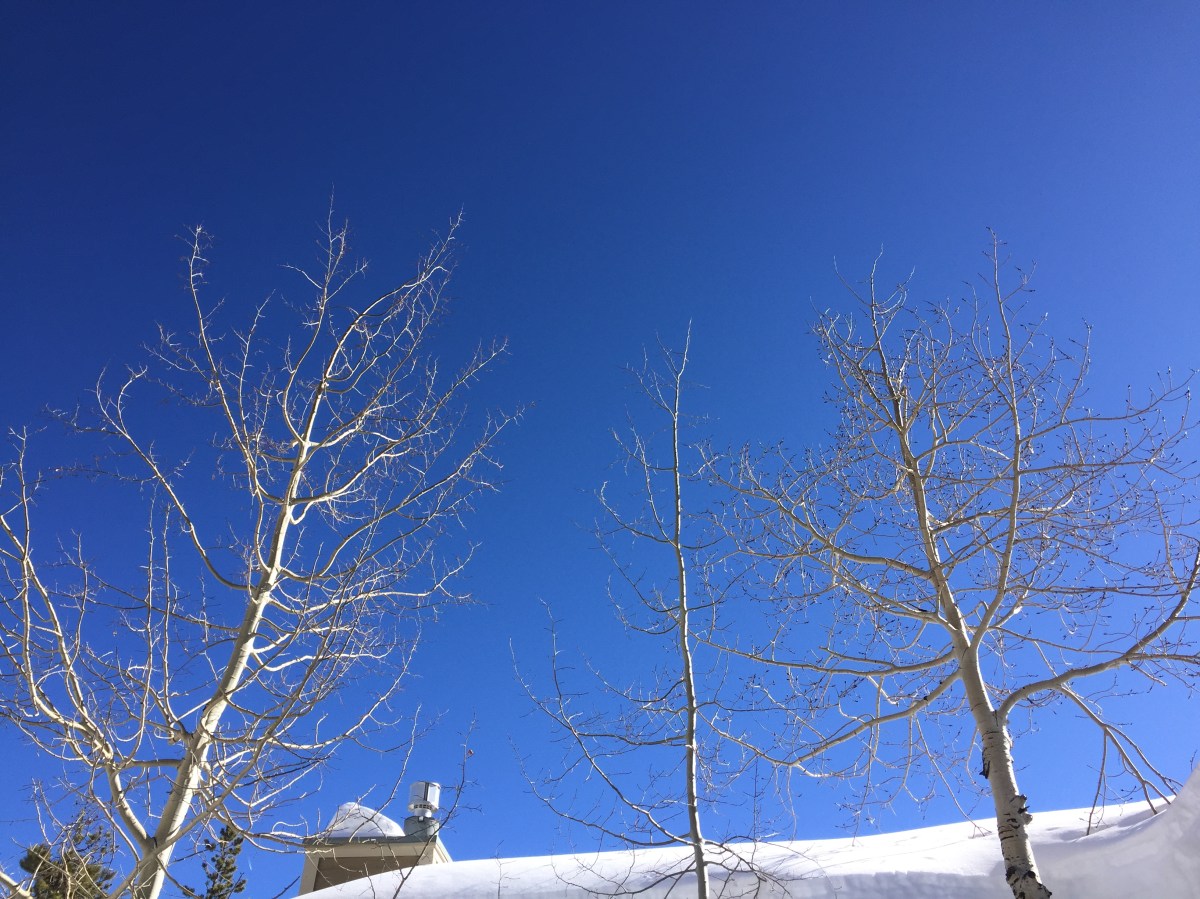
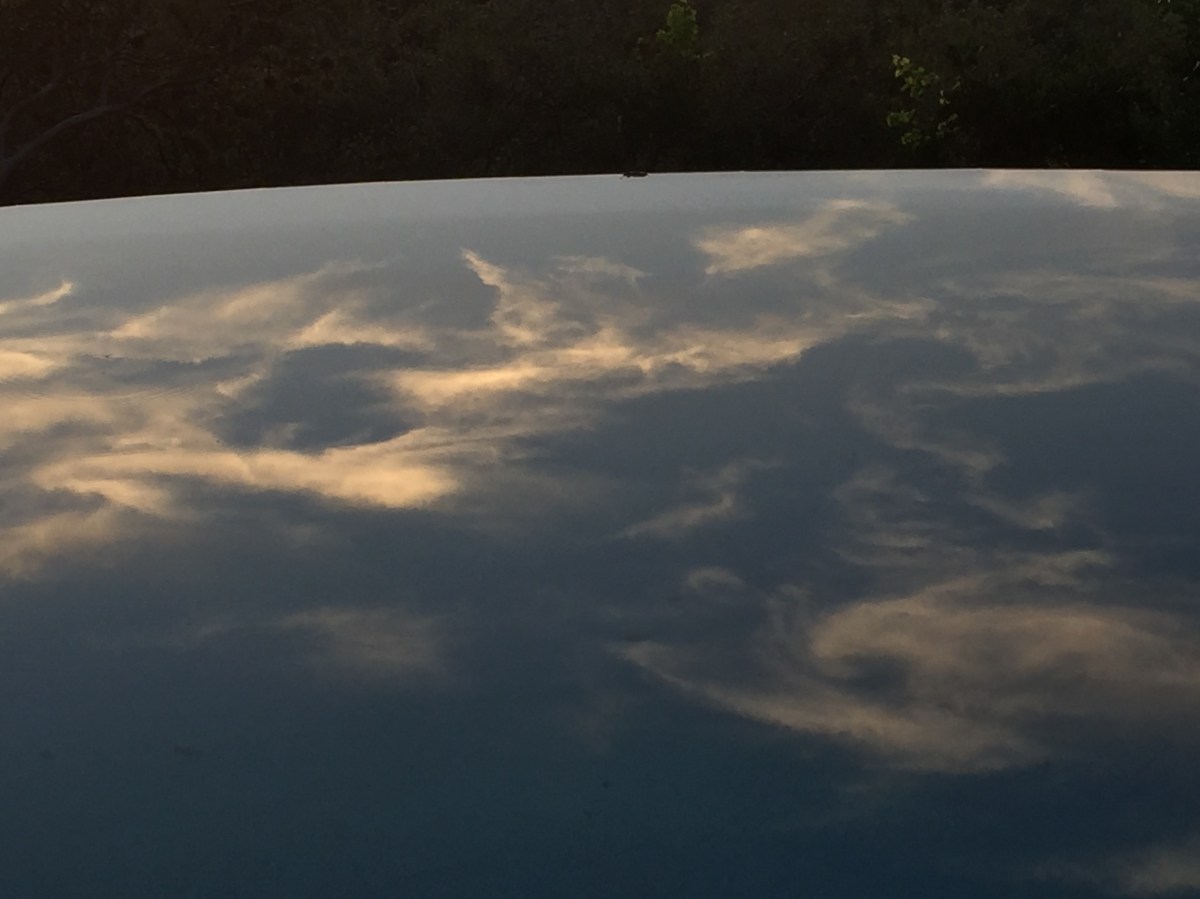
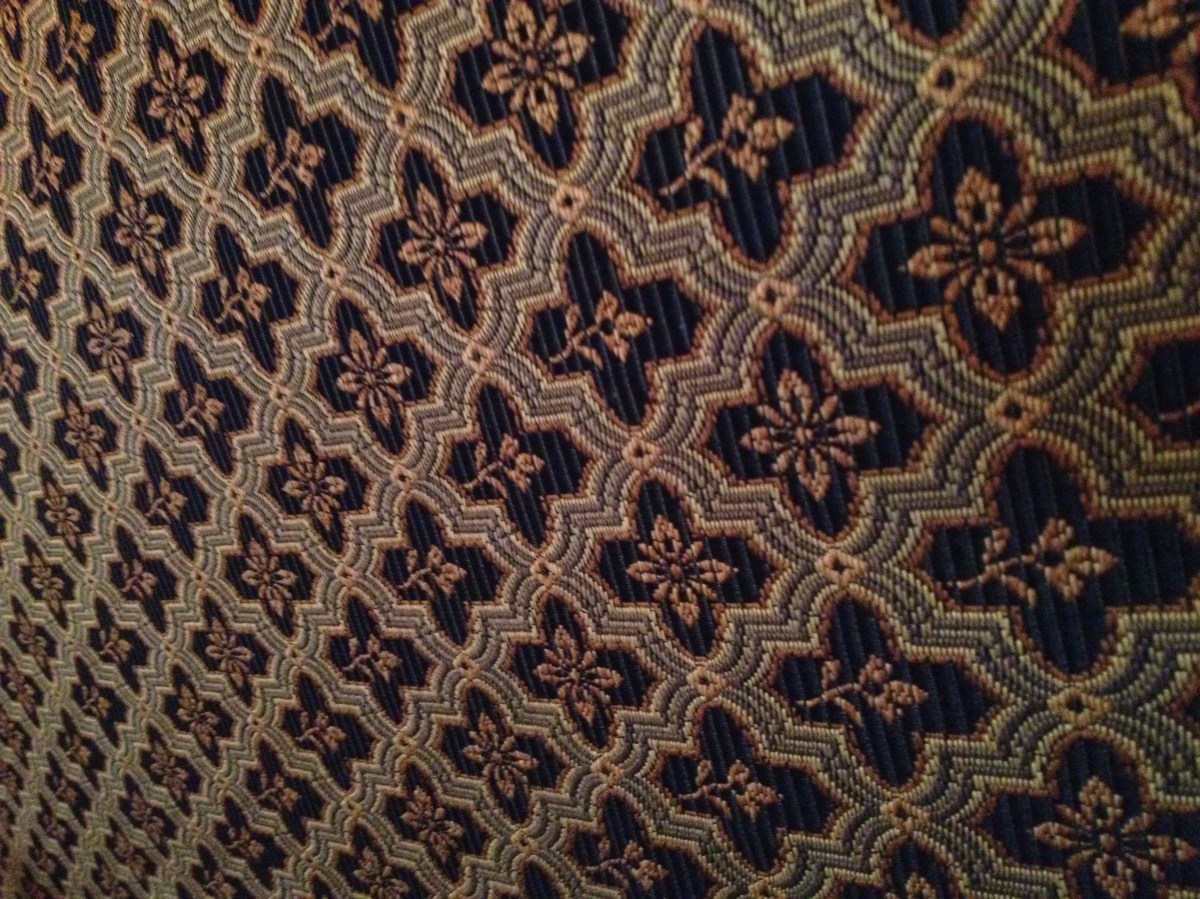
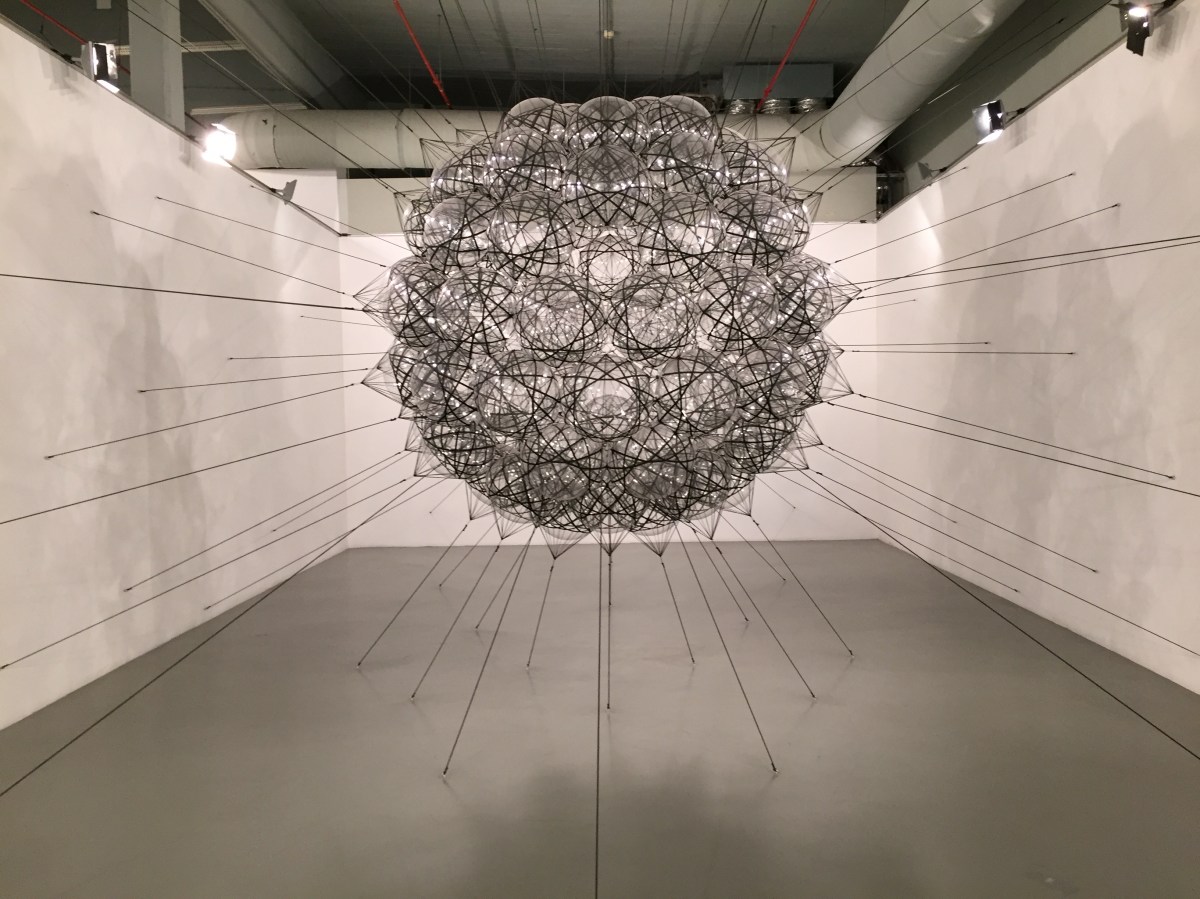


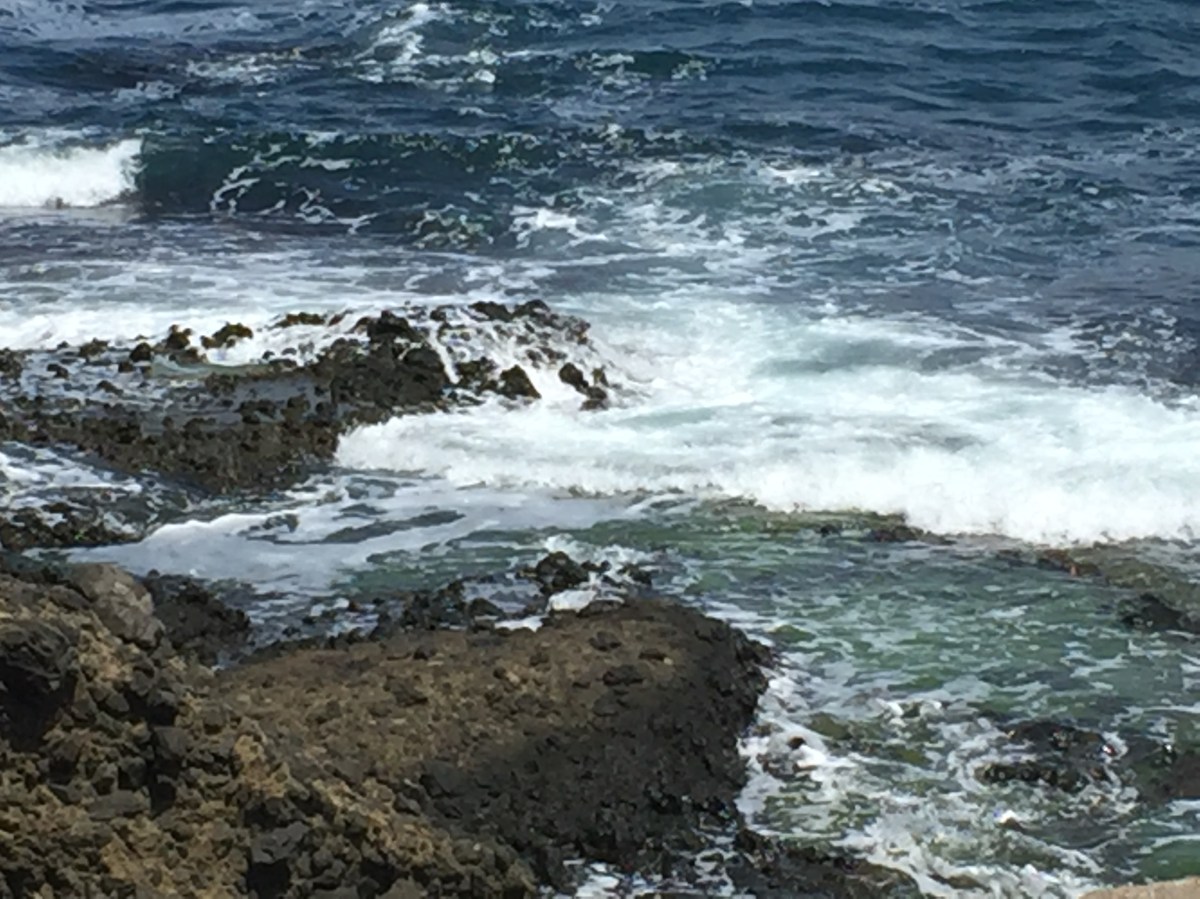

You must be logged in to post a comment.